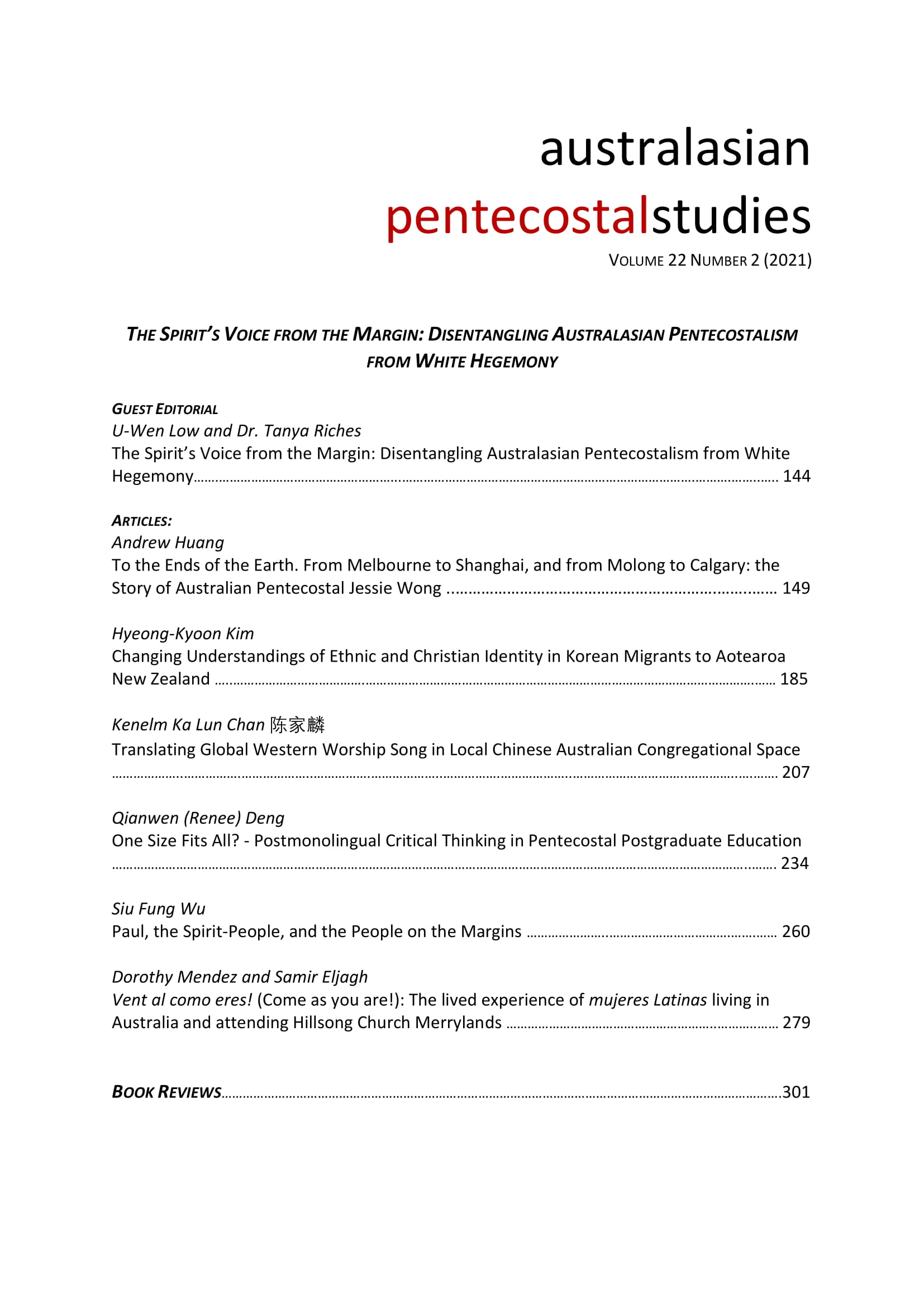Translating Global Western Worship Song in Local Chinese-Australian Congregational Space
Abstract
The translation of English worship songs within Chinese congregations is not a new phenomenon. Song translations accompanied the missionary and church movement in China. Many of these tunes are still used transnationally today (in China and Chinese diasporic communities across the globe), thus continuing the historical use of "western" songs in Chinese church worship repertoire and expression. This article focuses on the local Mandarin-speaking diaspora within Sydney, drawing upon the researcher's ethnographic study of the use of Mandarin translated worship songs and the practices associated with Mandarin translators in Hillsong (Hillsong 华语 huayu). This article focuses on the reception of translated songs in three Sydney-based Chinese congregations: Hills Chinese (a little-known local Mandarin service within Hillsong Church), and two comparable Sydney based Chinese Pentecostal congregations.
The article proposes that the use and meaning of the translated Mandarin songs is decided and evaluated by these local congregations as they navigate their own ecclesial, cultural, and social realities. Within these Pentecostal spaces, there is a shift away from any discussion of globalised music markets (i.e., Hillsong's global sound), towards the localisation that happens in the process of Mandarin translations and their use within these congregations. Furthermore, by focusing attention on these non-western voices it is hoped scholarship can assist a further shift away from the western dominant celebrities popular in contemporary music and its study.
Downloads
Published
How to Cite
Issue
Section
License
Authors who publish with this journal agree to the following terms:
- Authors retain copyright and grant the journal right of first publication with the work simultaneously licensed under a Creative Commons Attribution License that allows others to share the work with an acknowledgement of the work's authorship and initial publication in this journal
- Authors are able to enter into separate, additional contractual arrangements for the non-exclusive distribution of the journal's published version of the work (e.g., post it to an institutional repository or publish it in a book), with an acknowledgement of its initial publication in this journal.
- Authors are permitted and encouraged to post their work online (e.g., in institutional repositories or on their website) prior to and during the submission process, as it can lead to productive exchanges, as well as earlier and greater citation of published work (See The Effect of Open Access).


